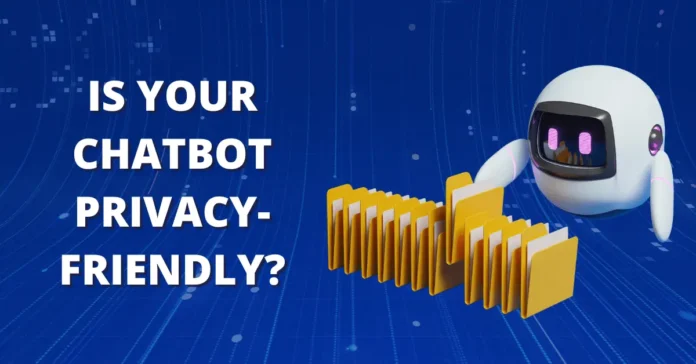Do you know what astrology has in common with sectors like healthcare, finance, and e-commerce? All of these domains are extremely personal. Like healthcare, finance, or even online shopping, the advent of AI in astrology has made the personal event all the more vulnerable, with users opening up to an application with their private details like birth chart, emotional state, and relationship concerns for machine learning and data analysis to read and analyze for personalized insights.
This level of vulnerability raises a serious question: What would happen with your astrological data once you enter it into the system? And on a more comprehensive level, what does ‘privacy’ even mean in a sector that merges intimate spiritual inquiry with algorithmic pattern recognition?
In this article, we will be exploring the complicated intersection of AI astrology and data privacy while diving into facets like what is being collected, how data gets used, and what risks are associated with this system.
What Sort of Data Do AI Astrology Apps Collect?
AI astrology apps are one of the most data-intensive wellness tools in the digital space. For generating a personalised report or even daily forecasts that are aligned with the users, the AI app will need a series of data such as:
- Full name
- Date, time, and place of birth
- Relationship status or preferences
- Real-time mood tracking
- Behavioural data from within the application, like how users interact with a feature or topic
Additionally, there are some other data points as well that the apps track to make the experience more accurate and user-friendly.
- Scroll patterns
- Time spent in the app
- Emotional sentiment from journal text.
The intersection of behavioural and identifiable data enables these AI astrology platforms to build extremely detailed, personalised user profiles that can give users the answers or insights they are looking for.
Where Does the Data Go and Who Can Access It?
Theoretically, AI astrology apps use your data to provide a better experience, accurate horoscopes, timing predictions, and empathetic nudges when going through emotional transits. But what works behind this user-first interface is a pipeline that is made on servers, third-party APIs, and commercial data warehouses. What lies at the centre of this technological web is data and how it gets used.
Some AI apps use the birth chart data for training machine learning models designed to forecast which type of content or feature someone with specific planetary placements. Now, while the data is generally anonymised, the behavioural patterns can be linked to specific user IDs, especially when the users log in or visit the app often. Certain apps utilise chat logs or journal data from AI astrologer conversations to better their natural language processing model, meaning the conversations you have within the app or the entries you make become the fodder that gets fed to the AI model for better predictions.
There is a third category as well on how the data gets used – and it is probably the one where the most friction arises in terms of privacy in AI astrology – marketing. If the application runs ads or sells products, the data you enter might be used for tailoring what is being shown to you. For example, if you make a journal entry saying that you broke up during a Venus retrograde, the app might start showing you content or products like healing crystals, therapy sessions, etc.
Can Your Data be Legally Protected?
This is where you leave the black and white to enter the grey area. While there are laws like GDPR and CCPA in place, which make it mandatory for companies to disclose how data gets used while giving power to hands in terms of deciding if they want their data to be used and in what capacity, a majority of AI astrology apps work in legal grey areas.
- They may not be based in jurisdictions where these strict privacy laws apply
- Their service agreement might be extremely broad or vague
- The privacy policy language could be opaque for the average user to understand.
The birth data is not technically considered sensitive information in the majority of scenarios, although users and astrologers would argue otherwise. The birth chart tends to reveal deeply personal patterns like relational tendencies, emotions, and even pointers suggesting family dynamics and trauma. Still, on legal grounds, it is like just another input field. Unless the app includes biometric data or health tracking features, the regulatory bar is very low. What is worse in some cases is that even after the user uninstalls the application, it doesn’t guarantee data deletion, meaning their data can still be used to train models for platform enhancement. Basically, the data you feed in or the personal information you share is hardly erasable.
The Ethical Side of AI Astrology Apps
Astrological assistance is often sought during difficult periods – job loss, marriage complications, maternity challenges, or difficulty in transformation. People often look at the stars when they are unable to find stability and clarity – this makes AI astrology apps a very vulnerable place to be in.
But from a machine learning perspective, vulnerability often equals higher engagement, so every time someone interacts with the app’s chatbot, makes a journal entry, checks forecasts frequently, or interacts with certain planetary themes, they spend more time in-app, which increases the chances of greater spending. This creates a very uncomfortable truth. There are some AI astrology apps that optimise the user experience around emotional vulnerability.
- Notifications can be timed around lunar phases known to impact moods
- Breakup-related content during Venus retrograde phases
- Nudges spike during full moons or eclipses.
There lies a very fine line between support and manipulation. When the app knows you are emotionally vulnerable and customises its experience accordingly, is it being helpful or exploitative? There is no one answer to this. What we suggest is investing your emotions in responsible apps that limit notifications during your sensitive time, offer grounding exercises, or let users not engage with emotionally charged content. Question every application that does otherwise.
What Can You Do To Protect Yourself?
As an AI astrology app user, there are several steps you can take to protect your data or at least have better control over your astrological data.
- Read the privacy policy. If you are short on time, look for terminologies such as ‘data sharing’, ‘model training’, or ‘third-party processors’.
- Use anonymous credentials by using a burner phone or not linking your real name with the app.
- Request data deletion. Check with your country’s data laws and request that the app not use your data for model training.
- Look at the features list more diligently and ask yourself if the answer you are looking for is something those features or input fields support.
Ultimately, awareness is the best shield for maintaining your privacy in AI astrology apps. But know that AI apps are not unsafe, they are just data hungry to provide you better experience down the line, so look at your comfort and willingness to share.
Conclusion
Astrology is all about introspection, and AI is about pattern recognition – together they provide a digital mirror, which, for poorly designed applications, is a surveillance tool. Things like emotional cycles, birth charts, and journal or chat entries are more than mere spiritual artifacts, they are data points – scalable, profitable, and even permanent – in the hands of machine algorithms. But this does not mean you should stop using these applications, it just means they should be engaged with more consciousness, something that astrology also teaches by telling us to know our patterns. So, know your choices and the working of the platforms you are engaging with. Astrology platforms like HiAstro are somehow relatively safer to use, which you can try if you want astrological insights.

